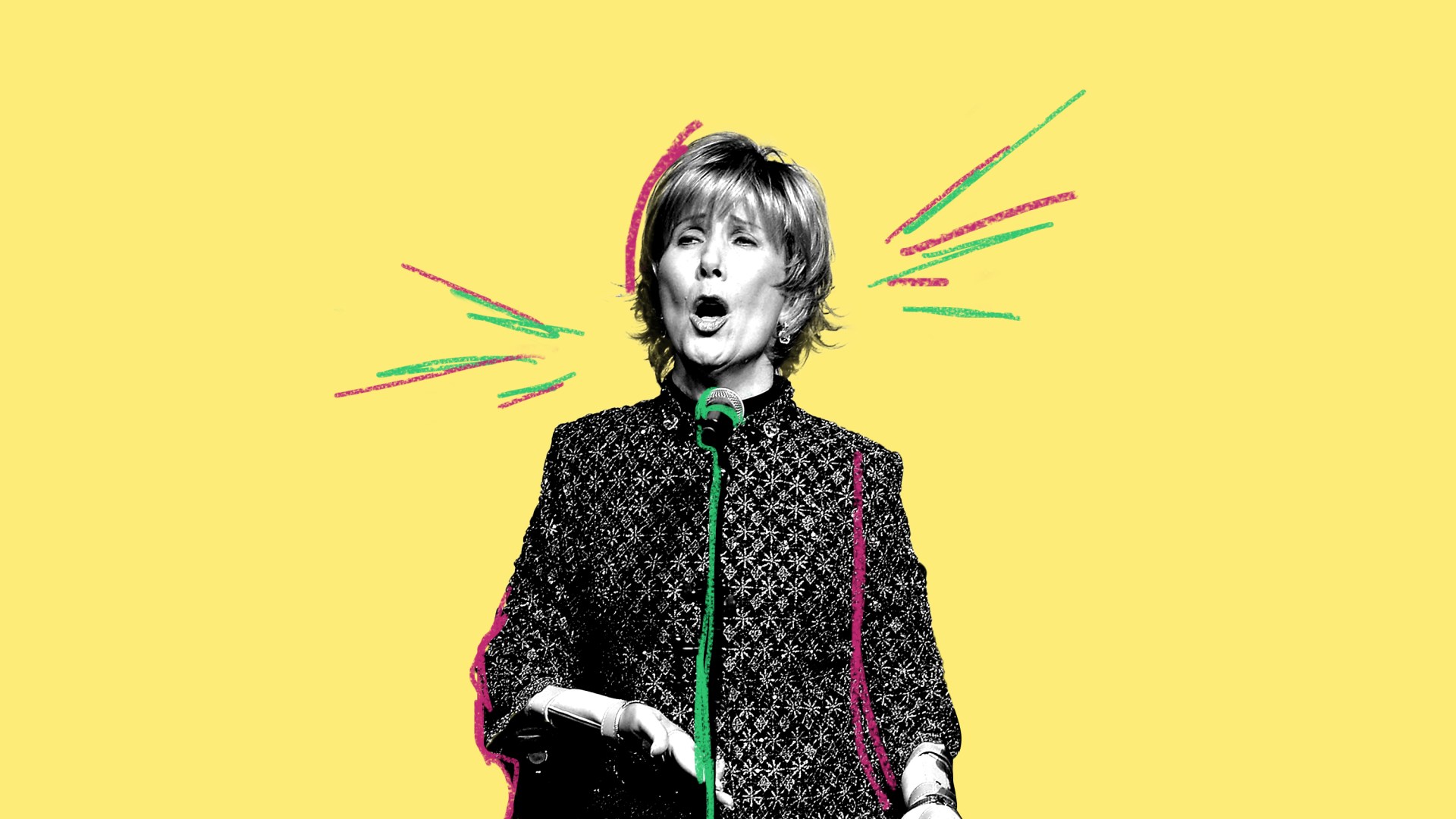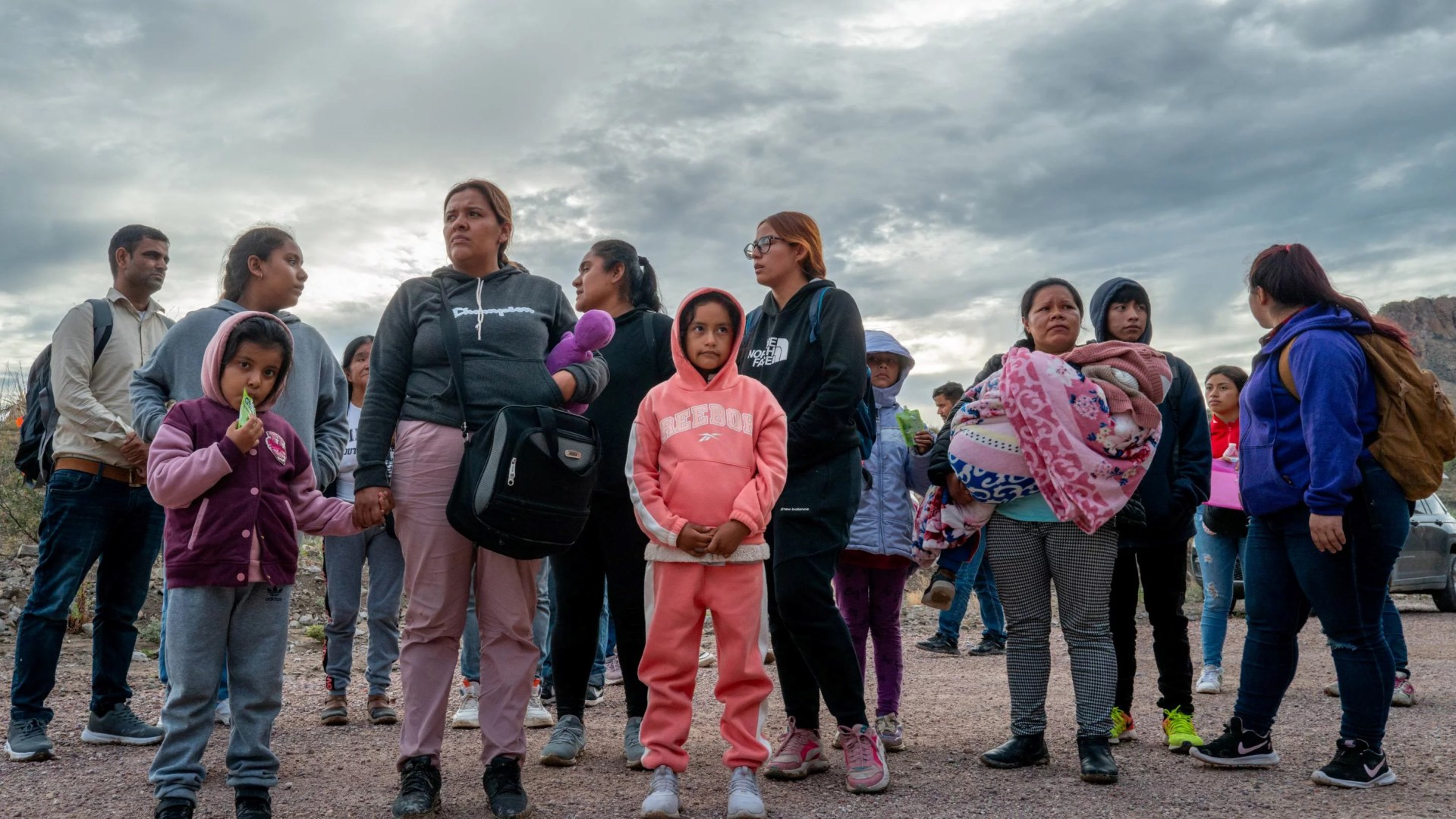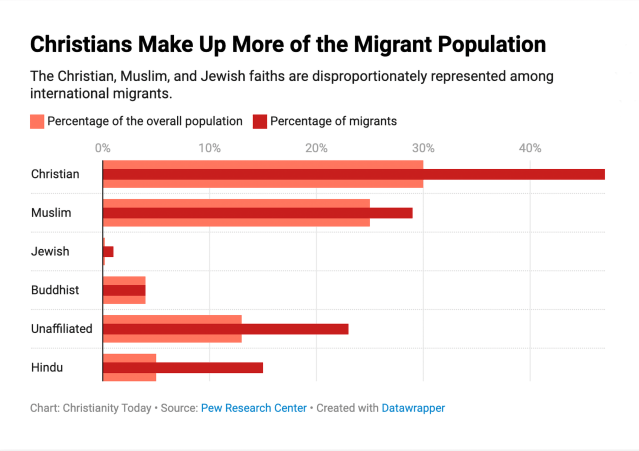Around 4,400 Para athletes will vie for victory in 22 sports at the summer Paralympics, which run from August 28 to September 8 in Paris.
The Paralympics use a system of classification to ensure that Para athletes competing in the same category have “similar functional abilities in terms of movement, coordination and balance.” Each class includes a letter representing the sport (like S for swimming) and a number (the lower the figure, the greater the impairment in most cases).
The Christian Para athletes featured below hail from nine countries and are competing in 12 sports, including Para cycling, Para swimming, shot put, and wheelchair rugby.
Below are their stories on how living with disability and excelling in their sport has given them opportunities to proclaim God’s name.
With reporting by Isabel Ong, Mariana Albuquerque, Morgan Lee, and Angela Lu Fulton.
Boccia
Andreza Vitória de Oliveira, Brazil
Andreza Vitória de Oliveira was 14 when she started practicing boccia. Today, the 23-year-old is a world champion who won gold at the Parapan American Games last year.
This is Oliveira’s second Paralympic Games; she first competed at Tokyo in 2020. “I’m going to do everything that I can do with a lot of dedication so that, God willing, everything goes well and I come back with a Paralympic medal,” she said.
At age two, Oliveira was diagnosed with Leigh syndrome, a neurodegenerative condition that affects the central nervous system and makes walking difficult. Oliveira started using a wheelchair at 11, and her mother introduced her to the sport a few years later.
“When you find happiness in doing something you love, every moment becomes a blessing, and every effort turns into an inexhaustible source of fulfillment and gratitude,” she shared on Instagram in April.
Long jump
Trenten Merrill, USA
In 2023, Paralympian Trenten Merrill finished fourth in the long jump at the Paris World Championship, off the podium by merely a centimeter and just four centimeters away from a silver.
Reflecting on the outcome, he shared on Instagram Colossians 3:23: “Work wholeheartedly as if working for the Lord and not for man,” and Proverbs 3:5–6, “Trust in the Lord with all thy heart; and lean not unto thy own understanding. In all thy ways acknowledge Him, and He shall direct thy paths.”
Merrill, who lost his leg after a car hit him while riding a dirt bike, tried out multiple track and field events before settling on long jump. The 34-year-old has competed at both Rio and Tokyo and is currently the American record holder in long jump for his classification. His mantra, at least according to Instagram, is “Trust God, trust the process and kick back like a BigMac.”
William Stedman, New Zealand
In May, 24-year-old William Stedman set a new world record of 53.36 seconds in the men’s 400-meter T36 final (for Para athletes with coordination impairments) at the World Para Athletics Championships.
At Tokyo 2020, he won silver in the men’s long jump T36 category and bronze in the men’s 400-meter T36 race. He will compete in the same categories at the Paris Games.
“Relying on God through the stresses and ups and downs of being a professional athlete has been so important to me,” he revealed in a July blog post. “The environment can be very achievement driven … [but] having my identity in Christ means that although I may not always perform, my value is secure in Him.”
Stedman, who has cerebral palsy, considers Philippians 4:6–7 his favorite Bible verse: “Do not be anxious about anything, but in everything, by prayer and petition, with thanksgiving, present your requests to God. And the peace of God, which transcends all understanding, will guard your hearts and your minds in Christ Jesus.”
Para Cycling
Jamie Whitmore-Meinz, USA
In 2008, Jamie Whitmore-Meinz discovered that she had spindle cell sarcoma, a condition that ultimately led doctors to amputate part of her left leg. Not long after, she learned that she was pregnant with twins.
“I’ve just always grown up knowing that strength comes from [God],” she said about this time in her life in a 2022 Sports Spectrum interview. “I’m going to fail and screw up, but I trust [God] to pull me out.”
Whitmore-Meinz, now 48, claimed gold at the 2016 Rio Games in the women’s road race C1-3 (a classification for Para athletes competing with prosthesis or limited movement). She has 12 world championships in total across her various disciplines and won the 2014 ESPY award for Best Female Athlete with a Disability.
“I’m so incredibly grateful God has led me on this path. … In 6 days I’ll officially be 16 years cancer free. I had no idea I would be heading to my third Paralympic Games way back then!” she wrote on Facebook in July. “God is good!”
Kadeena Cox, Great Britain
Last year, four-time gold medalist Kadeena Cox lost function on the right side of her body for the second time in her life and could barely walk. The first time this happened was in 2014, when she had a stroke and was diagnosed with multiple sclerosis.
As the 33-year-old continues to recover, she’s headed to the Paralympics for the third time to defend her women’s C4 500-meter time trial title of 34.433 seconds.
Throughout the health setbacks she’s experienced, Cox has been vocal about how much she’s relied on God. “Coping with my eating disorder while trying to prepare for the Paralympics is rough. … I’m doing everything to try [to] be in the best place mentally and trusting God to help me through,” she shared on Instagram in June.
“I know the fact that I’m back doing my thing … could only be God’s strength in me,” she also wrote on Instagram.
Nicolas Pieter Du Preez, South Africa
Nicolas Pieter Du Preez will be defending his title in hand cycling at the Paris Paralympics.
In 2003, Du Preez was hit by a car while cycling. He broke his neck and lost all function in his hands and fingers. Ten years later, he became the first person with tetraplegia (paralysis and loss of motor function from a spinal injury) to complete an Ironman triathlon.
He went on to win gold in the men’s time trial H1 race at the 2020 Tokyo Games despite sustaining a serious shoulder injury the year before. “So about a week after I broke my shoulder I told my wife that ‘this is probably God telling me that the gold medal in Tokyo is mine,’” he recounted.
Doing sports is how he spends time with the Lord. “I pretty much escape and connect with myself and God whenever I am out training, especially on the long easy training sessions,” he shared in a 2022 interview.
Para Swimming
Jessica Long, USA
For years, Jessica Long, one of the world’s most decorated Paralympic swimmers, has wrestled with her anger at having been given up for adoption.
“I’ve always been proving myself, right? To prove that I wasn’t just a girl with no legs, that I was worth it, that I can find a way to forgive my birth mom and that truly was the best thing,” the 32-year-old shared recently on The Natalie Tysdal Podcast.
Long was born without her lower leg bones and spent the first months of her life in a Siberian orphanage, undergoing 25 surgeries after coming to the US. She won her first gold medal at age 12 in 2004 and is now a 13-time world-record holder.
As she heads to her sixth Paralympics, Long knows that “at the end of the day swimming is just something I love to do. It’s a talent that God gave me.”
Katarina Roxon, Canada
At 15, Katarina Roxon was the youngest swimmer to represent Canada in the 2008 Beijing Paralympics. Eight years later, she scored gold at Rio in the 100-meter breaststroke and was part of the team that clinched the bronze in the 4×100 freestyle relay in Tokyo 2020.
While she thought of retiring in recent years, the upcoming Paris Paralympics marks the fifth time she is competing. “Going through many valleys this last quad has truly made me rely on God and his will for me, whatever it may be,” Roxon, 31, wrote on Instagram.
Roxon, whose left arm is missing below her elbow, firmly believes that being “different” is a superpower: “We are all in positions that can change the world! So use the abilities that God has blessed you with, to change someone’s world for the better!!”
Taylor Winnett, USA
Twenty-four-year-old Taylor Winnett captured seven medals (three gold and four silver) at the 2023 Parapan American Games. When she celebrated these accomplishments on Instagram, she quoted 1 Timothy 4:8: “For while bodily training is of some value, godliness is of value in every way, as it holds promise for the present life and also for the life to come.”
The Para athlete is debuting at the Paris Paralympics and will compete in four swim events, including the 100-meter butterfly and the 400-meter freestyle in the S10 classification (for Para athletes with physical impairment).
Winnett lives with Ehler-Danlos syndrome and postural orthostatic tachycardia syndrome and has shared about her struggles with loving her body. “I remind myself that even though my body has been broken down and is not considered ‘perfect’ by society, it’s my home,” she wrote on Instagram this April. “I was made in the image of God.”
Para Judo
Priscilla Gagné, Canada
Six weeks before the Tokyo 2020 Paralympic Games, judoka Priscilla Gagné fractured her elbow. But she went on to score the silver medal in the women’s 52-kilogram category against Germany.
“God gave me the grace to fight through it and still accomplish the mission, to come home with a medal,” she shared at a church in Tacoma, Washington in 2022.
Gagné, 38, was born with a genetic disorder, retinitis pigmentosa, and is partially blind. She started practicing judo in 2010, going on to medal at various world championships. “Judo has been something that God has used to enrich my life,” she said.
The Rhema Bible Training College graduate cites meditating on the Word and listening to an audio Bible as some of her favorite ways to spend time with God. “I’m a child of the Most High God. I do judo … but that’s not who I am.”
Para Powerlifting
Herbert Aceituno, El Salvador
“What God did not give me in height, he gave me in strength,” Herbert Aceituno, 38, said in an interview in May. Aceituno was born with achondroplasia and hydrocephalus and took up powerlifting after a friend invited him to the gym.
In 2019, Aceituno broke the record in the men’s up-to-65 kilogram category when he lifted 182 kilograms. He broke another record at the 2023 Pan American Games by lifting a whopping 192 kilograms in the men’s up-to-59 kilogram category.
“This medal goes to God and in memory of my father who from heaven is proud of what is done in this beautiful sport,” he declared.
The Paris Games will be Aceituno’s third time competing. At Tokyo 2020, he scored bronze in the 59 kilogram weightlifting category and was the first Salvadoran to medal at the Paralympics. “Thank you God. Now the Paralympic dream begins again and, if God allows it, we will have fresh happiness for this country,” he wrote on Instagram.
Shooting Para sport
Alexandre Galgani, Brazil
At the 2023 Parapan American Games, Alexandre Galgani, 41, took home a silver and a bronze medal and also secured a spot to compete in Paris.
When he was 18, Galgani hit his head while diving into a pool and experienced a spinal injury, losing mobility in most of his body. He competes in a category for rifle shooters who need support to shoot because they cannot use their arms to brace the weight of the weapon.
The Paralympian, who first represented Brazil at the 2020 Tokyo Games, shared an Instagram post in June reflecting on the power of second chances. “Then God said to me: ‘You will enjoy your life. You will learn to look to the future without feeling pain from the past. You will find a way to close wounds that once seemed eternal,’” he wrote.
“All honor to the one who strengthens me daily, God.”
Shot put
Funmi Oduwaiye, Great Britain
Welsh Para athlete Funmi Oduwaiye, 20, will be making her debut in discus throwing and shot put at the Paris Games.
During a routine surgery to correct her knocked knees in 2019, the surgeon damaged an artery that delayed blood flow into her leg, according to a short documentary published in July. This led to 10 more surgeries over the next three years. Doctors said she would never walk again.
Oduwaiye defied expectations and fought through the pain and paralysis of her right leg below the knee. In 2022, she decided to try Para athletics and discovered she was a natural at throwing events. At the Welsh Athletics Championship, she threw 11.03 meters in F64 shot put, just four centimeters off the world record. (This classification is for Para athletes with lower limb impairment.)
Oduwaiye has leaned on her faith during the last couple of years: “I can name a number of people that have helped me along the way, but I feel like it was God moving through them,” she said. “I give all the glory to him for me standing here today.”
Poleth Isamar Mendes Sanchez, Ecuador
At Tokyo 2020, Poleth Isamar Mendes Sanchez, 28, won the country’s first-ever Paralympic gold medal in the F20 women’s shot put (a class for Para athletes with intellectual impairment). At the Paris Games, she’s aiming to do the same.
Mendes was born with an intellectual disability and struggles with memory issues. In May, she celebrated making the podium at the Para Athletics World Championships by proclaiming: “God lives in me! Another victory, I can only be grateful.”
Mendes’s gratitude to God isn’t just limited to her sports achievements. “I know I have a lucky life and I appreciate every single thing I have. … Thank You My God,” she shared on her birthday several years ago.
Selina Sanday Seau, Fiji
 Pacific WAVE Sports Consultancy / Facebook
Pacific WAVE Sports Consultancy / FacebookAt a low point in her life, Selina Sanday Seau felt “she was not worth being part of anything.” The 45-year-old has a hearing impairment, a prosthetic leg, and a shortened hand on one arm. But God helped her to “realize her potential,” she said in an interview last year.
The versatile Para athlete has represented her country in badminton, discus, and javelin. She will compete at the Paris Games for the first time in the women’s Shot Put Ambulatory Para category after scoring bronze at the Oceania Athletics Championship.
Earlier this year, Seau enrolled in a sports science diploma program, and she hopes to encourage other people with disabilities to pursue their dreams. “Whether it is sports or studies,” she said, “if you have the determination and the passion, nothing is impossible.”
Sprint
Alan Fonteles Cardoso Oliveira, Brazil
At the 2012 London Games, Alan Fonteles Cardoso Oliveira beat his competitors, including South African favorite Oscar Pistorius, in the men’s 200-meter T44 final to win gold with a time of 21.45 seconds. (The T44 category is for Para athletes whose movement in a lower leg is affected at a low or moderate degree.)
The sprinter’s sudden fame overwhelmed the Paralympian, leading him to take a sabbatical away from the tracks. He returned to the sport in 2015 and competed in Rio 2016 and Tokyo 2020.
Fonteles’s legs were amputated when he was less than a month old after he caught an intestinal infection that developed into sepsis. He began running with prosthetic legs made of wood and would bleed during practice.
For the Paris Games, the believer is competing in the T44 200-meter race and quoted Bible verses like Psalm 37:5–27—”Commit, trust, and wait”—on his Instagram account. “God has been incredible and I know there is still much more to come,” he wrote on Instagram last year.
Wheelchair Marathon
Daniel Romanchuk, USA
At just 26, Daniel Romanchuk is already headed to his third Paralympics and is eager to return to the podium after medaling twice at the Tokyo Games.
In 2021, Romanchuk took home the gold in a thrilling 400-meter T54 race that saw him edge out Thai competitor Athiwat Paeng-nuea by 0.01 seconds. (The T54 category is for Para athletes who are functional from the waist up.) Several days later, he won a bronze medal in the marathon.
Coming into this year’s Games, Romanchuk has earned a second-place finish (with a personal best time of 1:20:37) at the Boston Marathon, and another second-place finish at the London Marathon.
“It’s a huge honor to be able to go to the Games and to represent the US on a world stage,” he said of competing in the upcoming Paris Paralympics. “Really thankful to God for the opportunities that I’ve had.”
Wheelchair Racing
Karé Adenegan, Great Britain
Karé Adenegan of Coventry, England, was born prematurely with cerebral palsy and uses a wheelchair. At 11, she watched British Paralympian Hannah Cockroft win gold medals in the 2012 London Paralympic Games and realized that she too could compete at an elite level in sports.
Four years later, she went up against Cockroft in the 2016 Rio Paralympic Games, winning a silver and two bronze medals. In Tokyo, she took home two more silvers. In Paris, she will be facing off against Cockroft again in the 100-meter and 800-meter races.
While her disability caused her to question God, Adenegan, 23, began to see that wheelchair racing has been “a door to a platform to develop myself and share my faith,” she told Premier Christianity in July.
On her Instagram account and in interviews, she’s boldly pointed others to the source of her success. After the Tokyo Games, she wrote in an Instagram caption that, although she was living out her dream, “only Jesus satisfies. The greatest achievement of this year has been falling in love with Jesus again.”
Wheelchair Rugby
Zion Redington, USA
At the age of two, Zion Redington was adopted by Heather Redington-Whitlock, an American passionate about serving children with medical challenges. Redington was born in China with ectrodactyly, a condition that gave him one finger on each hand and one toe on each foot.
After doctors decided to amputate his feet to improve his mobility, his mother threw him into various sports. The best fit, though, was the Cumberland Crushers, a rec wheelchair rugby team in Nashville, which helped set Redington on a pathway to qualifying for this year’s Paralympic Games.
Despite his passion and talent for the sport, Redington acknowledged that he has struggled with stress and burnout. The 18-year-old recently described his faith as a “resting place” and “a place of comfort,” where he knows that God is with him and is supporting him.






















































